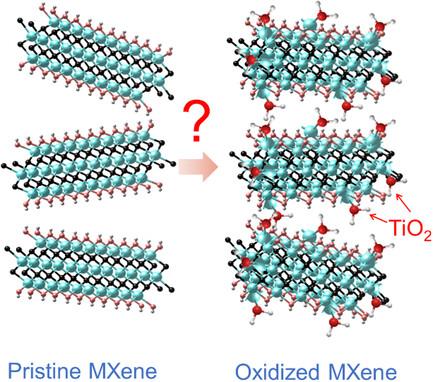Understanding the Chemical Degradation of Ti3C2Tx MXene Dispersions: A Chronological Analysis
IF 11.1
Q1 MATERIALS SCIENCE, MULTIDISCIPLINARY
引用次数: 0
Abstract
Titanium carbide (Ti3C2Tx) MXene has attracted significant attention due to its exceptional properties and versatile solution processibility. However, MXene dispersions are prone to various degradation processes, leading to the formation of byproducts that negatively affect its morphological, electrical, and mechanical properties. Through the years, several methods have been developed to mitigate MXene degradation; however, divergent viewpoints on the understanding of degradation mechanisms are prevalent, hindering the development of versatile strategies in producing environmentally stable MXene dispersions. This review provides a chronological analysis of the research efforts aimed at unraveling the underlying mechanisms of MXene degradation and highlights strategies for circumventing this process. This review discusses apparent inconsistencies in experimental findings and theoretical models. These discrepancies prompt further investigation for a clearer understanding of the degradation process in MXene. This narrative allows readers to follow the evolution of dominant theories and disputes and to ultimately stimulate further investigation, aiming for a better understanding of this process. It is anticipated that identifying the fundamental factors affecting the oxidation of MXene dispersions will enable their full-scale processing into higher-order structures and practical devices with greater longevity and long-term performance.

了解 Ti3C2Tx MXene 分散体的化学降解:按时间顺序分析
碳化钛(Ti3C2Tx)MXene 因其优异的性能和多功能溶液加工性而备受关注。然而,MXene 分散体容易发生各种降解过程,从而形成对其形态、电气和机械性能产生负面影响的副产品。多年来,人们开发了多种方法来缓解 MXene 降解;然而,对降解机制的理解普遍存在分歧,阻碍了生产环境稳定的 MXene 分散体的多功能策略的开发。本综述按时间顺序分析了旨在揭示 MXene 降解内在机制的研究工作,并重点介绍了规避这一过程的策略。本综述讨论了实验结果与理论模型之间明显不一致的地方。这些差异促使人们进一步研究,以便更清楚地了解 MXene 的降解过程。通过叙述,读者可以了解主流理论和争议的演变过程,并最终激发进一步的研究,从而更好地理解这一过程。预计找出影响 MXene 分散体氧化的基本因素后,就能将其全面加工成更高阶的结构和具有更长使用寿命和长期性能的实用设备。
本文章由计算机程序翻译,如有差异,请以英文原文为准。
求助全文
约1分钟内获得全文
求助全文
来源期刊
CiteScore
14.00
自引率
2.40%
发文量
0
期刊介绍:
Small Science is a premium multidisciplinary open access journal dedicated to publishing impactful research from all areas of nanoscience and nanotechnology. It features interdisciplinary original research and focused review articles on relevant topics. The journal covers design, characterization, mechanism, technology, and application of micro-/nanoscale structures and systems in various fields including physics, chemistry, materials science, engineering, environmental science, life science, biology, and medicine. It welcomes innovative interdisciplinary research and its readership includes professionals from academia and industry in fields such as chemistry, physics, materials science, biology, engineering, and environmental and analytical science. Small Science is indexed and abstracted in CAS, DOAJ, Clarivate Analytics, ProQuest Central, Publicly Available Content Database, Science Database, SCOPUS, and Web of Science.

 求助内容:
求助内容: 应助结果提醒方式:
应助结果提醒方式:


